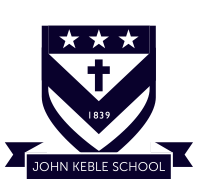British Values and SMSC
Intent, Implementation and Impact|
Vision Mission & Aims |
Within our small, inclusive school, we value everyone as a child of God and celebrate our diversity. We encourage curiosity and challenge through our values based learning ethos where we achieve our very best, both academically and socially, through a creative, vibrant and enriched curriculum.
In order to deliver this vision, we are committed to providing our children with the opportunity to achieve their full potential, develop responsibility, self-esteem and respect for themselves and others in a safe and inspiring learning environment. |
||||
| Christian Values |
Love We believe our children should develop a love for learning through a topic based, engaging curriculum in an environment where all members of our federation value and respect each other.
“Love one another as I have loved you” John 13:34
|
Hope We encourage our children to have a voice, accept uniqueness in themselves and others to help them recognise their own self-worth.
“But those who hope in the Lord will renew their strength. They will soar on wings like eagles; they will run and not grow weary, they will walk and not be faint.” Isaiah 40:31
|
Forgiveness We believe that we learn from making mistakes. We encourage our children to take risks and to challenge themselves in their learning. To love one another as Christ has loved us and to build learning on a foundation of trust, respect and forgiveness.
“Make allowance for each other’s faults, and forgive anyone who offends you. Remember, the Lord forgave you, so you must forgive others.” Colossian 3:13 |
Trust We believe that all children should be encouraged to have the confidence to be the best they can be. We trust them to take responsibility for their learning, behaviour and actions at all times.
Trust in the Lord with all your heart; do not depend on your own understanding.
|
|
| Teaching Intentions |
Culture Every child has a right to an education that offers both support and challenge, dependent on individual need, to enable them to thrive and become life-long learners. A strong emphasis on our Christian Values ensures children grow in confidence and enables them to build resilience to meet their challenges of an ever-changing world. |
Standards All children start every new day on ‘Ready to Learn’. High standards and expectations are modelled and encouraged to enable everyone to take responsibility for their performance, challenging themselves both inside and out of the classroom. Children are taught to understand that the skill of learning is about perseverance; knowing they may not get it right first time. This enables the whole community to reflect on what we need to do to improve our learning behaviours and achievements.
|
Opportunity We aim to draw out individual talents by giving the children a range of experiences to embed a love of learning. Utilising a range of resources and building strength within the community. To achieve their full potential, we recognise that children learn best when they are enjoying a range of learning experiences that activate the mind, body and soul.
|
||
| Children will leave our school being… |
Ready to Learn |
Responsible
|
Resilient
|
Resourceful
|
Reflective
|
|
Our Curriculum Drivers are: ICARE |
Inclusion
|
Creativity
|
Aspiration
|
Risk
|
Environment
|
| Organisation |
Our topic based curriculum is broad and balanced to provide rich and memorable learning experiences. Topic hooks are used regularly to stimulate discussion and create awe, wonder and curiosity in the children. The curriculum is structured to promote progression and develop knowledge and skills in each curriculum area which reinforce and complement each other. Meaningful links are made between subjects which enables the children to make connections in their learning, apply skills in different contexts and create a more holistic, relevant educational experience.
Reading is at the heart of each topic. Carefully chosen text drivers are used to provide sufficient challenge, hook the children in and engage them in their learning. A mastery approach is taken in the teaching of maths, using concrete apparatus, pictorial representations and abstract concepts to secure mathematical understanding. Where appropriate Maths is linked to the topic so the children can use it in context but daily teaching ensures full coverage.
Each subject has identified aims and progression of key knowledge and understanding for each year group. This knowledge and understanding is reinforced alongside the development of key skills. Almost all subject teaching and learning is discreet. Some aspects of the curriculum are also enhanced to enrich our love of learning through focus and pause days on themes such as: For the love of Christmas, For the Hope of Our World, Anti-bullying, Evacuee Day.
The children have an opportunity to learn various musical instruments through our peripatetic music teachers. . We are fortunate to have extensive resources within our grounds including a pond, woodland area and allotment which enables our children to have first-hand learning experiences and regular field study. |
||||
| Impact |
Personal Development Having a solid understanding of our Christian values will ensure that our children grow and flourish as individuals giving them every confidence to be successful in all that they do with the ability to show empathy towards others. |
Academic Progress From individual starting points all children are tracked to ensure skills are secured, knowledge is embedded and progress is made so that children are ready to embark on the next stage of their educational journey. |
Outcomes We aim to be statistically above when compared against both local authority and National benchmarks. |
||
| Evaluation |
Summative Using key benchmarks and formal assessments that capture achievement and progress at key points throughout the year. |
Formative Through a mixture of day-to-day and week-by-week feedback and assessment through marking, AFL, pupil conferencing, 1-1 and small group interventions provides pupils with opportunities to quickly improve skills and knowledge. |
Qualitative We use observations, discussions and feedback from a range of sources including pupil voice, interventions and small group work get reported, recorded and acted on in a timely way. |
||








